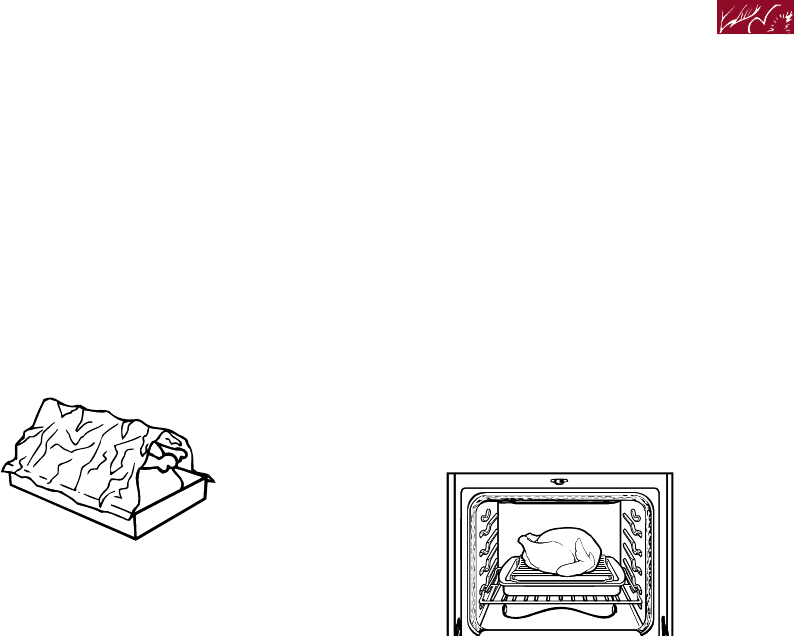
41
Roasting tips
• Roast meats fat-side up in a shallow pan
using a roasting rack.
• Use a roasting pan that fits the size of
the food to be roasted. Meat juices may
overflow the sides of a pan that is too
small. Too large of a pan will result in
increased oven spatter.
• Spatter can be reduced by lining the
bottom of the roasting pan with lightly
crushed aluminum foil.
• A foil tent will slow down surface
browning for long-term roasting, as when
roasting a turkey. Place tent-shaped foil
loosely over meat to allow for air circula-
tion. Do not seal foil or meat will be
steamed.
• Use an accurate meat thermometer or
temperature probe (see page 24) to
determine when meat has reached desired
degree of doneness. Insert the thermom-
eter or probe into the center of the thickest
portion of the meat or inner thigh or breast
of poultry. For an accurate reading, the tip
of the thermometer or probe should not
touch fat, bone, or gristle.
• After reading the thermometer once,
push it further into the meat
1
⁄2 inch or
more and read again. If the temperature
drops, return the meat to the oven for
more cooking.
• Check pork and poultry with a thermom-
eter in 2-3 places to ensure adequate
doneness.
• Poultry and roasts will be easier to
carve if loosely covered with foil and
allowed to stand 10-15 minutes after
removal from the oven.
• You can reduce roasting times and
temperatures for most standard recipes
when using the Convection Roast setting.
See convection roasting chart in your
convection oven cookbook for recom-
mended roasting times and temperatures.
• Use the convection roasting rack on the
broiler pan (both included with your range).
(The convection roasting rack rests on the
broiler pan, not inside it.) The long side of
the rack should be parallel with the oven
door for best heat distribution and airflow.
NOTE: Place the convection roasting rack
on the broiler pan with grid to contain the
drippings as the meat roasts.
U sing and Caring for Your Oven


















